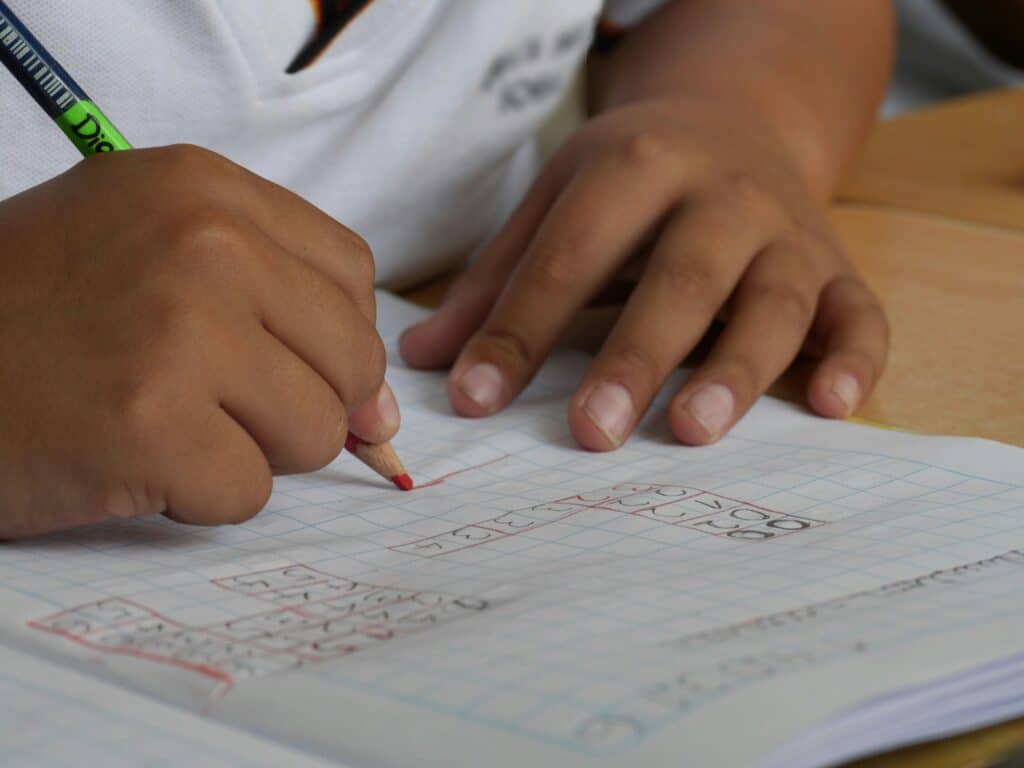Essential Academic Courses: Building a Strong Foundation for University Success

Picking the right academic courses for university success isn’t just about checking boxes. Choose classes that challenge your thinking, writing, and problem-solving from the start.
Go for academic courses for university success that sharpen critical thinking, clear communication, and study habits. These skills help you tackle tough university work without feeling lost.
Key Takeaways
- Pick courses that boost thinking, writing, and problem-solving.
- Build habits for solo study and teamwork.
- Master digital and study tools for your whole degree.
The Importance of a Strong Academic Foundation
Academic courses for university success provide the core skills, habits, and knowledge you’ll need for college.
Defining Academic Success in Higher Education
Academic success isn’t just about grades. It’s about analyzing texts, applying methods from statistics or chemistry, and hitting deadlines for research and projects.
When you can read a journal article, pull out the key data, and use it in a lab report, you’re showing real progress. Academic courses for university success help you get there.
- Success means more than GPA—it’s about skills and habits.
- Early performance in foundation courses can predict future outcomes.
- Employers notice how you work in teams and handle deadlines.
Benefits of Lifelong Learning Habits

Lifelong learning keeps your skills fresh and helps you adapt to new tools and fields. When you build habits—like regular reading, structured note-taking, and review sessions—you keep knowledge long after a course ends.
Try simple routines: set weekly goals, use spaced repetition, and reflect on instructor feedback. Academic courses for university success make these routines second nature.
Supporting Academic Performance and Professional Readiness
Solid academic courses for university success boost your performance and prep you for internships and jobs. Core classes teach problem-solving, data interpretation, and clear writing—skills you’ll need for reports and presentations.
Work on quantitative literacy with a statistics class, practice writing in your field, and get comfortable collaborating on group projects. These steps build confidence in labs, meetings, or team projects.
| Academic Foundation | Impact |
|---|---|
| Critical thinking | Improves research and analysis |
| Writing skills | Strengthens reports and presentations |
| Teamwork | Prepares for group projects and jobs |
Want to see the link between early coursework and later success? Check out studies on how foundation courses affect GPA and graduation rates. It’s pretty clear—academic courses for university success lay the groundwork for everything that comes next.
Core Academic Skills for University Success
Every student needs a toolkit for reading, thinking, studying, and managing time. Hard academic courses help you break down big ideas, use evidence, and plan your study sessions.
Critical Thinking and Analytical Skills
Don’t just accept claims—question them. Break arguments into pieces, ask what evidence supports them, and look for hidden assumptions.
Compare articles on the same topic to spot differences. Academic courses for university success encourage you to make tables, draw flowcharts, and write your own summaries.
- Question sources and look for bias.
- Use visual tools to organize ideas.
- Practice daily with news or essays.
Effective Study Habits and Strategies
Create a study routine that fits your schedule. Summarize in your own words, quiz yourself, and avoid just rereading notes.
Use folders for each subject and label everything. The Pomodoro method—25 minutes on, 5 off—can really help if you get distracted.
Time Management and Planning for Productivity
Start with a weekly plan that covers classes, study blocks, and deadlines. Block out time for the hardest tasks when you’re most alert.
Break down big projects into mini-steps. Use checklists for each assignment and review your plan every night to see what’s left.
| Skill | How to Build It |
|---|---|
| Critical thinking | Daily practice, compare sources |
| Study habits | Active methods, Pomodoro technique |
| Time management | Weekly plans, checklists |
Academic courses for university success demand strong planning. Tracking what works (and what doesn’t) makes a real difference in your grades and sanity.
Essential Communication and Collaboration Skills
Academic Writing and Research Fundamentals
Start every paper with a clear thesis. Map your argument, list evidence, and note counterpoints. Stick to academic conventions—formal tone, correct citations, and logical structure.
Keep track of sources with full citations and reading notes. Use editing checklists for clarity, flow, and accuracy. Proofread for grammar and formatting before you turn anything in.
- Always start with a thesis.
- Organize drafts and sources early.
- Edit for clarity and style.
Verbal and Written Communication Abilities
Write with active verbs and clear sentences. Begin each paragraph with a topic sentence and connect it to your thesis.
Before meetings, practice short summaries of your main points. Read sample papers, use peer feedback, and edit out fluff to make your arguments pop.
Collaboration and Teamwork in Academic Settings

Set group roles early—researcher, writer, editor, presenter—so everyone knows what to do. Use shared docs and a timeline for key deliverables.
Give direct feedback by pointing to specific lines and suggesting fixes. Fair workload and clear documentation keep group projects on track.
| Communication Skill | How to Strengthen |
|---|---|
| Academic writing | Thesis, structure, editing |
| Verbal skills | Practice summaries, peer feedback |
| Teamwork | Set roles, use shared docs |
Public Speaking and Presentation Techniques
Kick off with a one-sentence takeaway. Organize your talk: question, method, result, and implication. Keep slides simple—one idea per slide, readable fonts, and clear visuals.
Rehearse with a timer and record yourself. Prep for questions and keep answers short. When you present, make eye contact and use real examples to explain tricky points.
Literacy, Digital Competency, and Independent Learning
Developing Reading Comprehension and Literacy
Dive into active reading: preview headings, highlight key terms, and summarize paragraphs in your own words. Focus on main ideas, details, and the author’s purpose.
Grow your vocabulary by listing new words and testing yourself. Academic courses for university success push you to read everything—research articles, textbooks, even news pieces.
- Preview and annotate readings.
- Test vocab weekly.
- Practice timed readings and summaries.
Try a quick night review, one timed reading per week, and write a summary after each chapter. These routines make dense university texts feel less intimidating.
| Literacy Skill | Routine |
|---|---|
| Active reading | Preview, annotate, summarize |
| Vocabulary | Weekly self-tests |
| Comprehension | Night reviews, timed readings |
Digital Competency and Independent Learning
Get comfortable with digital tools—reference managers, note apps, and online databases. Academic courses for university success often require you to find and organize sources on your own.
Learn to set your own study goals and stick to them. Reflect on what works and tweak your approach when you hit a wall. That’s how you turn classroom lessons into lifelong learning.
Building Digital Literacy and Computer Skills

It’s crucial to know how to find, judge, and safely use information online. Start with academic databases and learn advanced search tricks—Boolean terms, filters, the works.
Always check who wrote the article, when it was published, and what sources it cites. That habit saves you from a lot of questionable material.
Get comfortable with computer basics: file management, spreadsheets, and making slides that don’t look like a mess. Try simple data visualizations—nothing fancy, just enough to get the point across.
Copy references into citation tools as you go. Use cloud storage so your work isn’t stuck on one device. Learn your school’s learning-management system (LMS) inside and out—submitting assignments, tracking grades, joining online discussions, all of it.
Stay cautious online. Strong passwords, two-factor authentication, and checking links before clicking are just smart habits. Want to brush up? Tons of institutions offer free digital literacy modules that actually help.
- Use academic databases and advanced search techniques
- Practice computer basics: file management, spreadsheets, slides
- Master your school’s LMS for assignments and grades
- Prioritize digital safety and take short online courses
Strengthening Independent and Personalized Learning
Set specific goals for each study week, then break them into small, doable tasks—think 30 to 60 minutes each. Plug those into a planner or digital calendar so you actually stick to them.
Keep a checklist and tweak your goals if some tasks take longer than you expected. That way, you’re not surprised when time runs out.
Pick study methods that fit you. Maybe you need practice problems, annotated summaries, or you just talk it out to see what sticks. Flashcards or spaced repetition apps are lifesavers for memorizing facts.
Don’t wait to get feedback. Ask tutors or use peer review early so you catch mistakes before they turn into habits. That’s a game changer for academic courses for university success.
Balance is everything. Short, steady study sessions beat cramming every time. You’ll feel more in control as readings and assignments pile up.
- Break weekly goals into short, clear tasks
- Use planners or digital calendars for time management
- Choose study methods that fit your style
- Seek feedback early and often
| Skill | Action | Benefit |
|---|---|---|
| Digital Literacy | Practice safe, effective research | Find credible sources fast |
| Personalized Learning | Set and adjust goals weekly | Stay motivated, avoid burnout |
Study Skills, Note-Taking, and Academic Culture
Here’s where you learn how to actually keep up with classwork and expectations. Taking clear notes and acting professionally makes a bigger difference than most people expect, especially in academic courses for university prep.
Effective Note-Taking and Information Organization
Stick to a consistent system for every class. Cornell notes work well—keywords and questions on the left, details on the right, then a summary underneath.
If your professor gives out slides, save or print them and add your notes right on top. It’s way easier than starting from scratch.
Always jot down dates, page numbers, and any examples your professor gives. Bullet points, bold headings, and short phrases help you review faster.
For tough concepts, sketch a diagram or mind map. Sometimes a quick drawing is all it takes for things to click.
Digitize your notes when you can. Tag files with course codes and weeks, so you’re not hunting for stuff later. Searchable notes make studying and writing papers much less painful.
- Use a consistent note-taking method like Cornell notes
- Annotate slides and record key details
- Draw diagrams for complex ideas
- Keep digital, organized, and searchable notes
Understanding Academic Culture and Professionalism

Start by reading the syllabus for every academic course for university success. Know the rules on plagiarism, collaboration, and late work right away so you don’t get blindsided.
Follow the citation style your department uses. If you’re not sure about group work, just ask—better safe than sorry.
When you email instructors, use a clear subject line and keep it brief. Show up to office hours, and bring drafts if you want real feedback.
Dress and act professionally in labs and presentations. Treat campus spaces like you would any workplace—respect goes a long way.
Stick to deadlines and be upfront if you’re late. Offering a plan to finish shows you’re reliable, and that helps you build trust with professors and classmates.
- Read the syllabus for every class
- Follow department citation rules
- Communicate clearly with instructors
- Respect deadlines and group partners
| Practice | Why It Matters | Quick Tip |
|---|---|---|
| Consistent Note-Taking | Boosts retention and saves time | Try Cornell or mind maps |
| Professional Communication | Builds trust with faculty | Use clear, polite emails |
Self-Discipline and Adaptability in Academic Environments
Sticking to a weekly routine really helps. I like to set fixed study blocks for each class, and honestly, it keeps me on track.
I use a planner or sometimes just my phone’s calendar to block out time for readings, assignments, and those endless review sessions. Breaking down big tasks into 25–50 minute chunks (with quick breaks) keeps my brain from melting.
To see if I’m making progress, I’ll count practice problems, pages read, or even how many notes I’ve actually summarized. If my grades or feedback slip, I tweak my plan—sometimes I’ll switch to active recall, spaced review, or rope in a study group.
When things get tough, I don’t wait. I reach out to campus tutoring, writing centers, or sometimes those online modules everyone forgets about. Staying flexible and disciplined is the only way I’ve found to handle heavier workloads and the weird new standards in academic courses for university success.
Seek help early through campus or online resources
Set fixed study blocks for each academic course for university success
Use short, focused study intervals and regular breaks
Track progress with clear, simple metrics
Adjust strategies based on feedback and results
Conclusion

Academic courses aren’t just some checklist; they’re your launchpad. They not only make your transcript look better, but also prepare you with skills you’ll use in college.
So, are you picking academic courses that really set you up for the future, or just filling credit hours?
References
Jeffrey D. Karpicke and Henry L. Roediger III. “Retrieval Practice Produces More Learning than Elaborative Studying with Concept Mapping.” Science, vol. 331, no. 6018, 2011, pp. 772–775, https://www.science.org/doi/10.1126/science.1199327 Accessed 12 Feb. 2026
Scott Freeman et al. “Active Learning Increases Student Performance in Science, Engineering, and Mathematics.” Proceedings of the National Academy of Sciences, vol. 111, no. 23, 2014, pp. 8410–8415, https://www.pnas.org/doi/10.1073/pnas.1319030111 Accessed 12 Feb. 2026
Association of American Colleges and Universities. “LEAP: Liberal Education and America’s Promise — Essential Learning Outcomes.” AAC&U, https://www.aacu.org/leap Accessed 12 Feb. 2026
National Survey of Student Engagement. NSSE Annual Results and Benchmarks, Indiana University Center for Postsecondary Research, https://nsse.indiana.edu Accessed 12 Feb. 2026
National Center for Education Statistics. The Condition of Education, U.S. Department of Education, https://nces.ed.gov/programs/coe Accessed 12 Feb. 2026
Organisation for Economic Co‑operation and Development. Education at a Glance 2024: OECD Indicators, OECD Publishing, https://www.oecd.org/education/education-at-a-glance/ Accessed 12 Feb. 2026
National Academies Press. How People Learn: Brain, Mind, Experience, and School — Expanded Edition., National Research Council, 2000, https://nap.edu/catalog/9853/how-people-learn-brain-mind-experience-and-school-expanded-edition Accessed 12 Feb. 2026
EDUCAUSE Library. “Digital Literacy and Competencies — Teaching & Learning Topic Guide,” EDUCAUSE, https://library.educause.edu/topics/teaching-and-learning/digital-literacy Accessed 12 Feb. 2026

